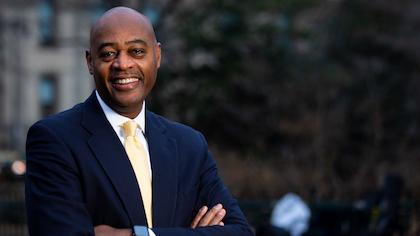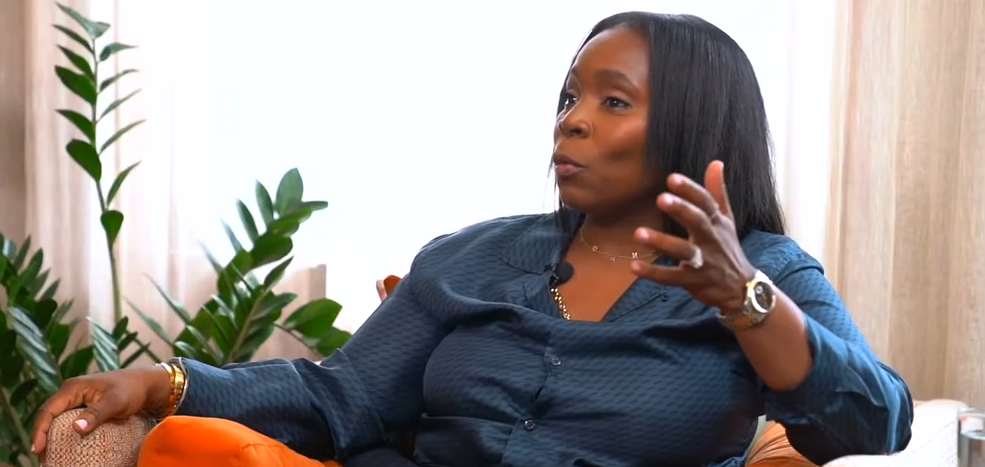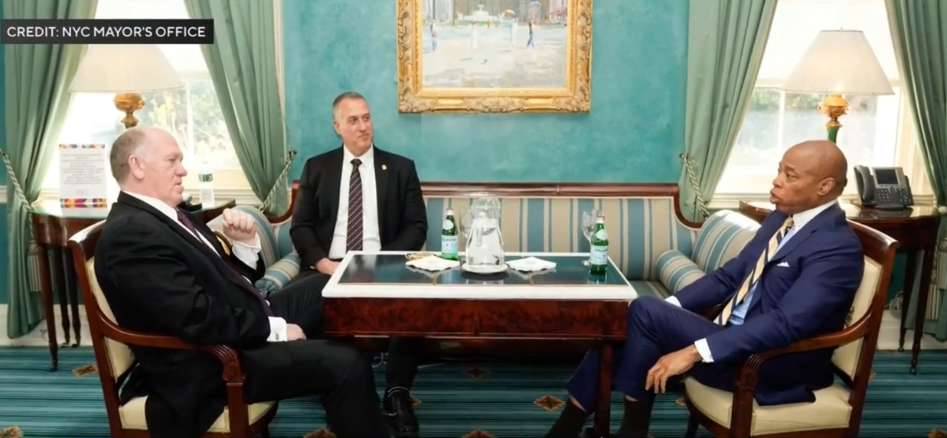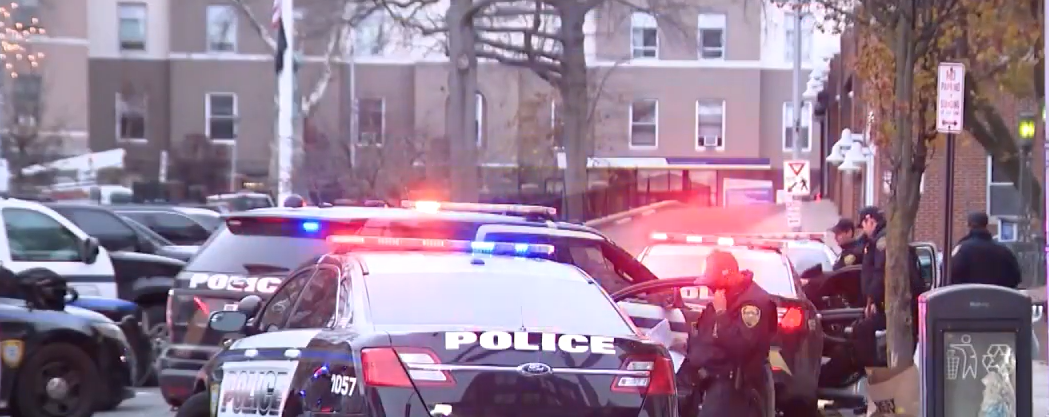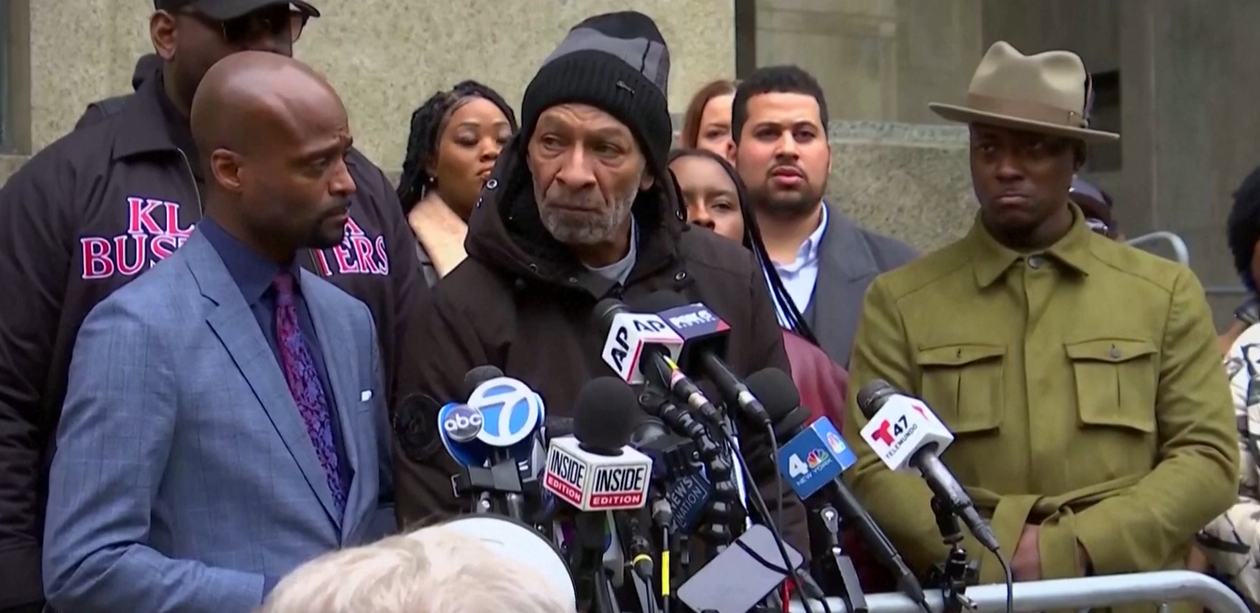Ray McGuire. Photo by McGuire campiagn.
In the race to become the next mayor of New York City, Ray McGuire hopes that his 13 years as a leader on Wall Street translate into votes. As Citigroup’s Vice Chair of Global and Investment Banking division, he was the longest serving head of investment banking in the history on Wall Street.
McGuire says he was instrumental in turning around the company’s stock from its great recession low of $0.99 per share—as of 9:25 AM on April 23, the value was $69.89.
Now McGuire aims to use his financial savvy and proven leadership skills to help the City’s economy recover from the Covid-19 pandemic. McGuire recently spoke with Black Star News about his economic comeback plan for the city and why New Yorkers should choose him to succeed outgoing Mayor Bill de Blasio.
McGuire calls his comeback plan, “the greatest and most inclusive economic recovery in the history of New York City”. He proposes creating 500,000 jobs, temporarily suspending City imposed business licensing fees, and subsidizing employee salaries at 50,000 small businesses that have been negatively impacted by the Covid-19 pandemic. McGuire breaks the comeback plan down in three stages: Go Big, Go Small, and Go Forward. By “Go Big” he means developing and maintaining the City’s infrastructure; “Go Small” refers to supporting small businesses and their employees; and “Go Forward” involves job training, addressing systemic inequities, expanding affordable housing, broadband access, and other initiatives.
The infrastructure component of McGuire’s comeback plan is financially dependent on the Biden administration’s proposed $2.3 trillion infrastructure plan. McGuire would direct the infrastructure funds to developing affordable housing, expanding broadband access, climate resiliency projects, updating the electrical grid, bridges, and sewage mains. The meat of the comeback plan lies in McGuire’s proposals to assist small businesses and spur economic development.
Small businesses would be revitalized by subsidizing 50% of employee wages for one year and temporarily suspending collection of small business regulatory and licensing fees during the same period, the candidate says. McGuire would negotiate the with Albany and the City Council to allow small businesses to retain the New York City sales taxes for one year for reinvestment or to meet payroll. His plan also seeks to permanently streamline the licensing process and reduce the red tape associated with starting or renewing a small business, he says. “If it takes 180 days to open a small business and the City has not responded, on the 181 day the business would get relief”, McGuire says. Businesses would either receive a reduction in fees or be allowed to operate on interim or limited capacity until the matter is resolved.
McGuire would leverage the City’s authority to negotiate with Consolidated Edison (ConEd), National Grid, and others to lower utility costs for small businesses. McGuire says he would invest heavily in job training and development, providing employment opportunities at all levels. McGuire intends on creating and maintaining a positive relationship with Albany to facilitate assistance from New York State when needed.
McGuire wants to incentive the development and growth of new and existing businesses by investing funds into Community Development Fund Institutions (CDFI). CDFI organizations are financial institutions specifically designed or chartered to lend funds to small businesses, not-for-profit organizations, and communities traditionally marginalized by larger financial organizations. As mayor, McGuire will use his position to appeal to the federal government for a holiday on FICA score use for determining accessibility to credit. He argues that the pandemic caused substantial damage to the credit scores of millions of Americans because of job and revenue losses. Americans should not be penalized for something beyond their control, McGuire says. Access to credit would encourage spending and economic growth.
When asked how, he plans on paying for all his proposed initiatives, McGuire quickly goes to the numbers. He would be operating from a prospective city budget of $95 billion, including $5.2 billion in aid from the federal government. The breakdown of the federal aid would be $2.3 billion in FY’21, $1.8 billion in FY’22, and $1.8 billion in FY’23. During his first year in office, FY’22, McGuire says he expects to have an overall City budget of $92 billion, spending about $900 million to fund his comeback plan, which he believes would generate $300 million in growth, plus 5% in productivity. At the end of FY’22, the City would have generated $460 million in revenue, he says. The $900 million would be distributed as follows: $350 million on New York City sales tax waiver, $450 million to subsidize employee wages, and $100 million to waive small business licensing fees.
For FY’23, McGuire anticipates having a slight deficit, which would be manageable. Of all the candidates running, McGuire says, he’s “the only one with experience managing large budgets.”
As mayor, McGuire says he would address the systemic inequalities in education, healthcare, housing, as well as income and wealth gaps. His comeback plan would make changes to the Minority and Women Business Enterprises (MWBE) program, installing a so-called Rooney Rule requiring a percentage of each municipal contracts to go to these businesses. The Rooney Rule, established in 2003, is named after former Pittsburgh Steelers coach and then head of NFL diversity Andy Rooney; it requires that league teams interview ethnic-minority candidates for head coaching and senior football operation jobs whenever there is an opening.
As mayor, McGuire would divide some of large municipal contracts amongst MWBE vendors, letting them transition from their current position of only being subcontractors.
McGuire is a strong proponent of education and would work hard to have his administration address the gaps in academic resources and achievement. He would invest in teachers, resources, apprenticeship, college and career preparation, as well as vocational programs. McGuire wants to eliminate the inequalities in education and wants to provide opportunities for Black and Brown students to succeed and to fulfill their career aspirations.
McGuire stated that he would invest in educational opportunities such as workforce training, vocational training, and apprenticeship programs for the incarcerated and formerly incarcerated so that they could take advantage of employment opportunities upon release.
McGuire says his housing plan goes beyond creating affordable rental units, NYCHA repairs, and homelessness. He seeks to increase homeownership by building 350,000 units of deeply affordable housing units, which include a mix rental units and homeownership opportunities. He wants to extend funding for the First-Time Home Buyers subsidy program.
During his time at Citigroup, he wrote the foreword to Closing the Racial Inequality Gaps: The Economic Cost of Black Inequality in the U.S., a report released by Citigroup in 2020. As McGuire states, the report found “that if four key racial gaps for Blacks — wages, education, housing, and investment — were closed 20 years ago, $16 trillion could have been added to the U.S. economy. And if the gaps are closed today, $5 trillion can be added to U.S. GDP over the next five years.”
For McGuire, his comeback plan is an extension of the work that he has done as a leader on Wall Street, he says. He has mentored people of color and created more employment opportunities for Black and Brown people in corporate America at all levels.
McGuire says his professional experience is actually a bonus in politics. Too often, elected officials are not held accountable; once in office, they use their positions to jockey for their next job. McGuire says he’s not tied to any political machine. He is also accustomed to managing large budgets, handling high pressure situations, being held accountable, and getting the job done, he says.
Will New Yorker’s elect businessman Ray McGuire as mayor? The jury is out.
